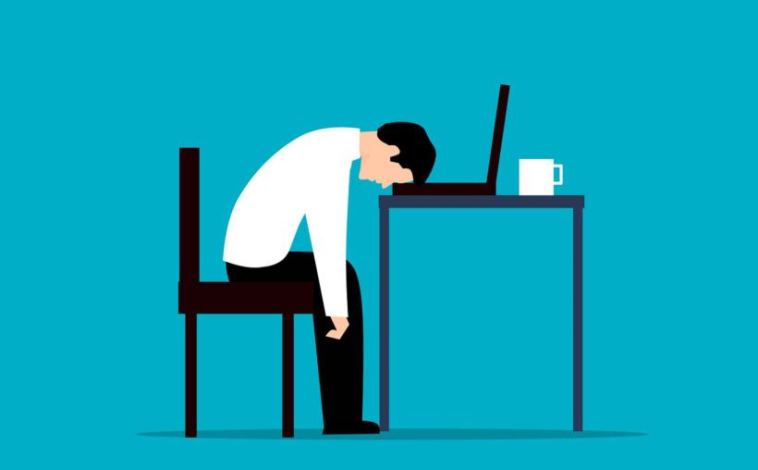- Like
- SHARE
- Digg
- Del
- Tumblr
- VKontakte
- Flattr
- Buffer
- Love This
- Save
- Odnoklassniki
- Meneame
- Blogger
- Amazon
- Yahoo Mail
- Gmail
- AOL
- Newsvine
- HackerNews
- Evernote
- MySpace
- Mail.ru
- Viadeo
- Line
- Comments
- Yummly
- SMS
- Viber
- Telegram
- JOIN
- Skype
- Facebook Messenger
- Kakao
- LiveJournal
- Yammer
- Edgar
- Fintel
- Mix
- Instapaper
- Copy Link
Introduction
Have you ever rolled around in your bed, hoping to get some sleep before that important exam? Or perhaps you have repeatedly asked yourself at what time should I wake up for this business trip but were unable to estimate the perfect sleep duration? It happens to many of us, and the culprit is our lack of awareness about sleep cycles and stages.
Like our need to eat and nourish ourselves, sleep is also a natural and recurring bodily requirement that you cannot skip without consequences. These drawbacks may be personal, such as a fatigued day ahead, failing to meet work deadlines set by your grumpy boss, or arriving at your wedding ceremony embarrassingly late. They can also be more severe in a lot of cases. For example, in the US alone, drowsy driving causes 6,000 fatal accidents yearly, and nurses who work for longer with no sleep are three times more likely to commit medical errors than those who sleep well. It is imperative to learn the nuts and bolts of sleeping to keep sleep problems from disharmonizing your life. This guide aims to answer all such queries.
What Happens to My Brain While I Sleep?
The time span and quality of your sleep have a direct correlation with your mental and physical health. Sleep is a catalyst for a lot of biological and chemical processes in your brain and body. The brain plasticity theory says that your mind retains new information that it has learned as the neurons reorganize themselves during sleep. It is also why mentors recommend students get a whole night’s sleep before crucial exams. During this time, the brain also gets rid of toxins that are the by-products of reactions occurring throughout the day. It helps declutter your nervous system and improve concentration-time and creativity.
How Does Sleep Impact My Body?
Research shows that people with proper sleep schedules tend to have healthier organs and better immunity against diseases. Your body manufactures antibodies and proteins called cytokines during sleep, which then strengthen your immune system against germs. Quality sleep also facilitates blood pressure regulation and sympathetic nervous system activity. People with sleep deprivation are often at a higher risk of acquiring cardiovascular diseases for the same reason.
Experts have also found a link between healthy sleep and low insulin resistance. It means that your body is more likely to be receptive to the hormone insulin if you get proper sleep. This hormone regulates blood sugar levels. Good absorption by cells decreases the chance of hyperglycemia, a condition in which excess glucose builds up and manifests itself through obesity and heart diseases. For the same reason, chronically sleep-deprived people have a higher tendency to be diabetic, overweight, or have metabolic issues. Thus, sleep directly impacts your hormonal balance, organ health, and digestive system.
What Are the Sleep Cycles?
Rather than being in a monotonous state as you sleep, your mind undergoes several sleep cycles. These can range from four to six for a healthy adult, spread over seven to nine hours. Each of these cycles constitutes four primary stages of sleep that can be classified as REM (Rapid Eye Movement) and Non- REM (Non-Rapid Eye Movement). These are simplified below.
Stage 1
It is the phase of light sleep in which you can feel your mind slowly drifting towards unconsciousness. It is short-lived and only lasts for a few minutes, during which your muscles relax, and brain activity slows down. Your heartbeat and eye movement also become steady during this time. But since you aren’t fully asleep, it is easier to wake up when there are external disturbances.
Stage 2
The second stage, also referred to as the intermediate stage, lasts considerably longer than the first. Your body and mind continue to relax further in this period, and your body temperature also drops. This step is vital for nervous system activity as information and memory consolidation begins to occur in the brain.
Stage 3
As the first stage of deep sleep, this is an essential transitional state. It is also known as slow-wave sleep, in which your immune system strengthens. It is also a healing time for your body as muscles and bone recovery takes place. Breathing and heart rate are the lowest at this point, so waking up is also unlikely.
Stage 4
With stage three, the Non-REM cycle also ends. Your body now enters the REM phase, in which many vital changes take place. It is so-called because your eyeballs rapidly move in all directions behind your eyelids. The blood pressure, heartbeat, and breathing rate all rise again during this period. However, your muscles become still at this time. It is also when you see the most vivid dreams, although many people cannot recall them later!
How Can I Apply This Information?
An entire sleep cycle takes around 90 minutes, after which you go back to stage one. You can use this information to determine the duration of your sleep and naps. Waking up during stages one and three will leave you groggy and dazed for quite some time, as these are transitional stages. If you are going for a nap, it is much healthier to wake up once you have entered stage one (after around 25 minutes) or have completed one sleep cycle (90 minutes). Alternatively, if you plan a night’s sleep, completing several sleep cycles would ensure that you feel fresh and well-rested for important events and daily activities.
What Else Can Help Me Improve My Sleep?
Besides figuring out the ideal sleep duration, you can also increase your chances of a high-quality sleep by investing in blackout curtains. Alternatively, increasing your exposure to natural daylight will signal your body that it’s time to sleep at night. It is also vital to reduce caffeine consumption or heavy exercise before sleep time because these activities take your brain to its high-alert mode, in which sleep is unlikely.
The Bottom Line
To develop a natural sleep rhythm and stay in tune with your needs, doctors recommend maintaining a consistent sleep schedule even on weekends. This proactiveness will ensure that you will be completely focused the next time you have an important exam or meeting in the morning.


